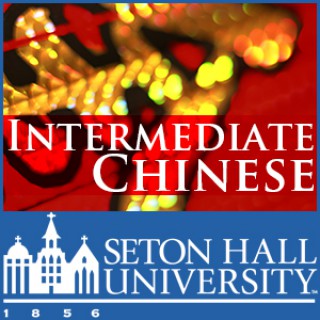
Conversations from the Front Lines: Meetings of the Ethics and Economics Forum at Seton Hall
Follow Conversations from the Front Lines: Meetings of the Ethics and Economics Forum at Seton HallThese podcasts are recorded monthly meetings of the Ethics and Economics Forum. For more information, go to http://blogs.shu.edu/ethicsandeconomicsforum/.
- Jul 8, 2015 LATEST EPISODE
- infrequent NEW EPISODES
- 1h 8m AVG DURATION
- 6 EPISODES
More podcasts from Seton Hall University
Latest episodes from Conversations from the Front Lines: Meetings of the Ethics and Economics Forum at Seton Hall

During this meeting, Dr. Paula Alexander of the Stillman School of Business lead a discussion on John Rawls’ ethical theory and its economic implications. Rawls was a moral philosopher at Harvard, and the author of "Justice as Fairness".

During this meeting, Associate Professor Anthony Haynor of the Department of Sociology, Anthropology and Social Work, will discuss worker-owned businesses. "The prevailing capitalist model is one in which 'profit' goes to investors with workers receiving a 'wage' as compensation for their labor/expertise," Dr. Haynor explained. "The state has entered into the picture in cases in which the 'wage' is deemed to be inadequate (minimum wage laws) or there is no wage (public assistance, food stamps, unemployment compensation, etc.). But, what if the workers were the investors and were responsible for the work process, for what is done with profit, and for the wage/benefits structure?" According to Dr. Haynor, the area of worker cooperatives contains an established Catholic tradition, demonstrated through Pope Leo XIII's Rerum novarum, Pope Pius XI's Quadragesimo anno, G. K. Chesterton's distributism and the Mondragon cooperatives established in the Basque region of Spain in 1956. A 2013 documentary, titled Shift Change, mentions the Mondragon cooperatives and reports on experiments primarily in the United States. Shift Change may be found through SHU Libraries.

During this meeting, Associate Professor Kurt Rotthoff of the Stillman School of Business explores significant approaches to the economic cycle and economic theory. To prepare for his presentation, listen to the podcast of EconTalk’s Russ Roberts discussion with Steve Fazzari on the 2009 stimulus package results and Keynes’ theories. A like to the EconTalk podcast can be found at http://blogs.shu.edu/ethicsandeconomicsforum/resources/online-resources/.

During this meeting, Msgr. Richard Liddy leads the discussion on Bernard J. Lonergan's approach to economics. Lonergan wrote extensively on economic theory and created his own macrodynamic economic model. To familiarize yourself with Lonergan's economics before the meeting, consult "The Development of Catholic Social Teaching on Economics: Bernard Lonergan and Benedict XVI" by Neil Ormerod, Paul Oslington, and Robin Koning, SJ.

During this meeting, Dr. Dermot Quinn, Department of History, and Associate Editor of The Chesterton Review, leads a discussion on Chesterton's distributist economic theory. Distributisim offers critiques on Monopoly Capitalism and on Socialism. The Distributist philosophy recommends widespread property ownership.

This meeting focuses on the foundations of ethics and economics. Dr. Michael Taylor (Department of Political Science) will be provide a brief overview of the neoclassical model and growth theory in economics (based on N. Gregory Mankiw's 10 principles of economics) and then discuss various economic schools of thought in relation to this neoclassical model. In response, Dr. KC Choi (Department of Religion) will map ways in which the neoclassical model in economics may be interpreted and assessed through the disciplinary lens of ethics.
















